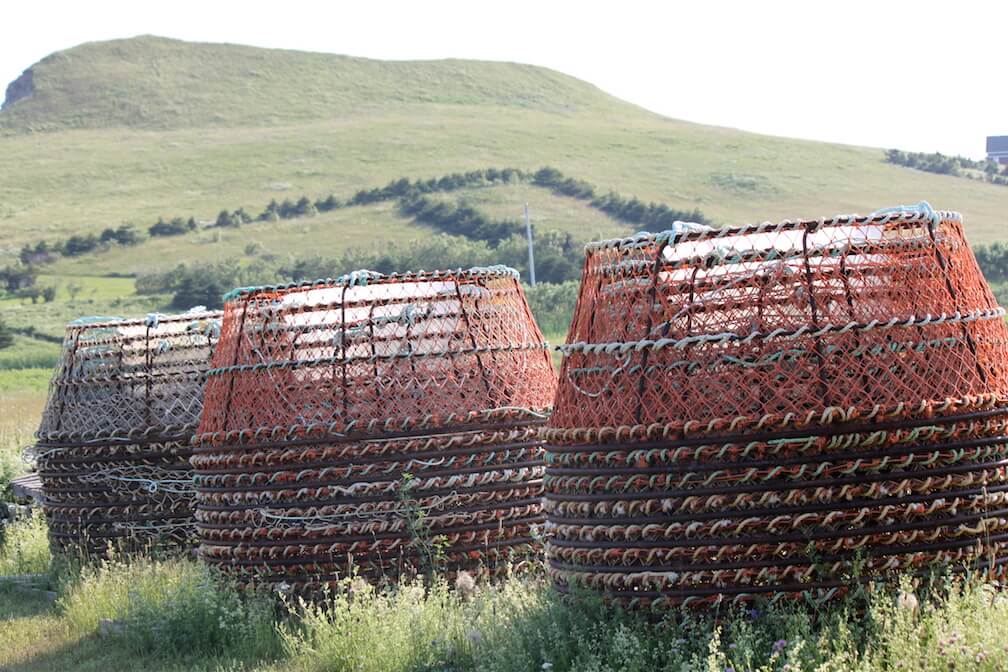Four new management measures for the snow crab fishery have been announced by Fisheries and Oceans Canada Minister Dominic LeBlanc with the aim of lowering the risk of entanglements for North Atlantic right whales.
- The amount of rope floating on the surface shall not exceed 3.7 metres in length when attaching a secondary buoy to a primary buoy. Previously, there was no maximum length.
- Rope will be marked with the colour specific to each fishing zone, which will help improve traceability.
- Each buoy shall be identified with a sequential number, in addition to the vessel’s current registration number.
- Lost fishing gear must be reported to the authorities. This way, the material will be more likely to be found and recovered.
In addition to these four measures, there is also the possibility, ice cover and weather conditions permitting, that the season might be adjusted for a specific zone or for the entire region so that fishing ends before the whales arrive.
More than 80% of right whales will get entangled in fishing gear at least once in their life. In 2015, 85% of North Atlantic right whale deaths along the US east coast were attributed to bycatch. And even when entanglement is not immediately fatal, it can have a long-term effect on the animal’s health and even its ability to reproduce. The measures announced today address a formidable challenge.
“It’s an ongoing job that does not stop with the measures announced today.” – Dominic LeBlanc, Fisheries and Oceans Canada Minister.
“It’s an ongoing job that does not stop with the measures announced today,” confirmed the minister at a news conference in Moncton. Over the next few weeks, the federal government is expected to announce multi-million dollar investments aimed at detecting whales in sensitive areas and avoiding collisions.
On the issue of speed restrictions, the minister described as “very likely” the reinstatement of this measure next summer. He goes on to say that the effectiveness of collision avoidance measures is scientifically proven.
Questioned on the moratorium on right whale disentanglement operations, Minister LeBlanc assured that the government was examining the situation and awaiting the report on the incident that cost the life of fisherman and whaler Joe Howlett last July. Since Monday, members of the Canadian Whale Disentanglement Specialist Group, an organization affiliated with the Canadian Marine Animal Response Alliance, have been meeting in Halifax to address the tricky issue of disentanglement operations.
Robert Michaud, scientific director of the GREMM and coordinator of the Quebec Marine Mammal Emergency Response Network, attended and listened with his colleagues to the Minister’s announcement. “We are pleased that the federal government is moving forward. The measures announced are all important, but they do not provide significant gains in terms of right whale protection. We are therefore eager to hear the next round of announcements,” he said. As for an earlier start to the fishing season, “it’s an interesting but complex measure. If we open the season earlier, might we see a greater impact on other species such as blue whales?”
To read the full coverage : Right Whale Mortalities
Some Reference Elements
The Government Summaries
Canada: Right whale deaths in Gulf of St. Lawrence and What we heard report: A summary of comments from the Ministerial Roundtable on North Atlantic Right Whales
United States: 2017 North Atlantic Right Whale Unusual Mortality Event
On Whales Online
Whales of the St. Lawrence: North Atlantic Right Whale
Our report on entanglements: “Whales in the Nets”
On the speed limits : Reduced speed limits for ships: an effective measure for protecting whales?
On the decline of the right whale population: North Atlantic Right Whales Declining Since 2010, Confirms Study
Portrait of nine of the whales that died this summer: Giant Losses.
The Necropsy Report
Daoust, P.-Y., E.L. Couture, T. Wimmer and L. Bourque. 2017. Incident Report: North Atlantic Right Whale Mortality Event in the Gulf of St. Lawrence, 2017. Collaborative Report. Produced by: Canadian Wildlife Health Cooperative, Marine Animal Response Society, and Fisheries and Oceans Canada. 224 pp. Online.





